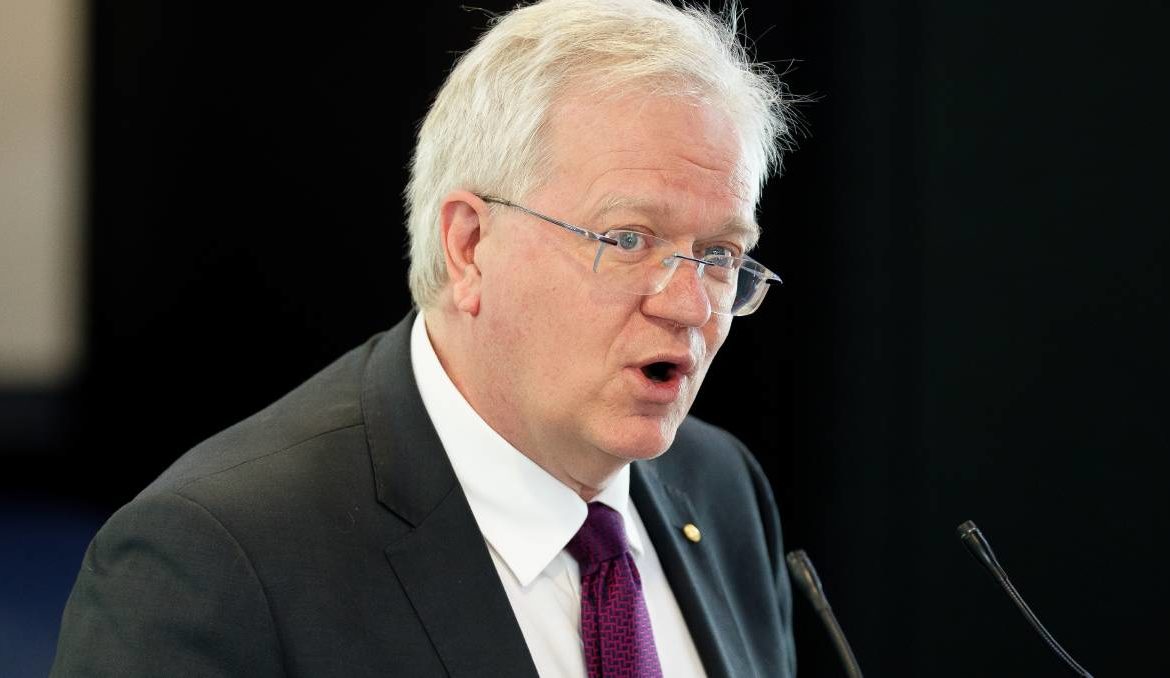news, education, foreign interference Australian universities, ANU, brian schmidt
Australian National University vice-chancellor Brian Schmidt is worried conflicting and burdensome regulations to combat foreign interference could be imposed on universities. It comes as a parliamentary committee investigated the national security risks affecting the higher education and research sectors. “We don’t want to be regulated into submission,” Professor Schmidt said. “We don’t want to be overburdened and have our staff scared to go out and do things, because that actually makes Australia weaker.” Prof Schmidt said any further regulations should be in line with the work of the University Foreign Interference Taskforce, of which he is a member. He said the ANU was now one of the most secure universities in the world following a sophisticated cyber attack in late 2018. READ MORE: Just over two years on, it was still unknown who was behind the data breach, however, it was consistent with a state actor rather than a criminal gang or random hacker. “We have made it an order of magnitude more difficult, and more expensive to be broken into. [We are] one of the safest universities in the world … I think that’s the biggest worry, making sure our staff and our students are secure, because that’s how we allow academic freedom to flourish,” Prof Schmidt said. Professor Schmidt said the ANU was working to diversify its overseas student cohort but the Chinese market was 10 times bigger than any other country.
/images/transform/v1/crop/frm/3BUUzmFAhrhLyX9rFCubPq5/b9b31be3-5ce7-4ee2-8a1d-c4300cb25adb.jpg/r3_334_4175_2691_w1200_h678_fmax.jpg
ANU vice chancellor Brian Schmidt said the university was among the most secure in the world following a massive cyber attack in 2018. Picture: Sitthixay Ditthavong
Australian National University vice-chancellor Brian Schmidt is worried conflicting and burdensome regulations to combat foreign interference could be imposed on universities.
It comes as a parliamentary committee investigated the national security risks affecting the higher education and research sectors.
“We don’t want to be regulated into submission,” Professor Schmidt said.
“We don’t want to be overburdened and have our staff scared to go out and do things, because that actually makes Australia weaker.”
Prof Schmidt said any further regulations should be in line with the work of the University Foreign Interference Taskforce, of which he is a member.
He said the ANU was now one of the most secure universities in the world following a sophisticated cyber attack in late 2018.
Just over two years on, it was still unknown who was behind the data breach, however, it was consistent with a state actor rather than a criminal gang or random hacker.
“We have made it an order of magnitude more difficult, and more expensive to be broken into. [We are] one of the safest universities in the world … I think that’s the biggest worry, making sure our staff and our students are secure, because that’s how we allow academic freedom to flourish,” Prof Schmidt said.
Professor Schmidt said the ANU was working to diversify its overseas student cohort but the Chinese market was 10 times bigger than any other country.







